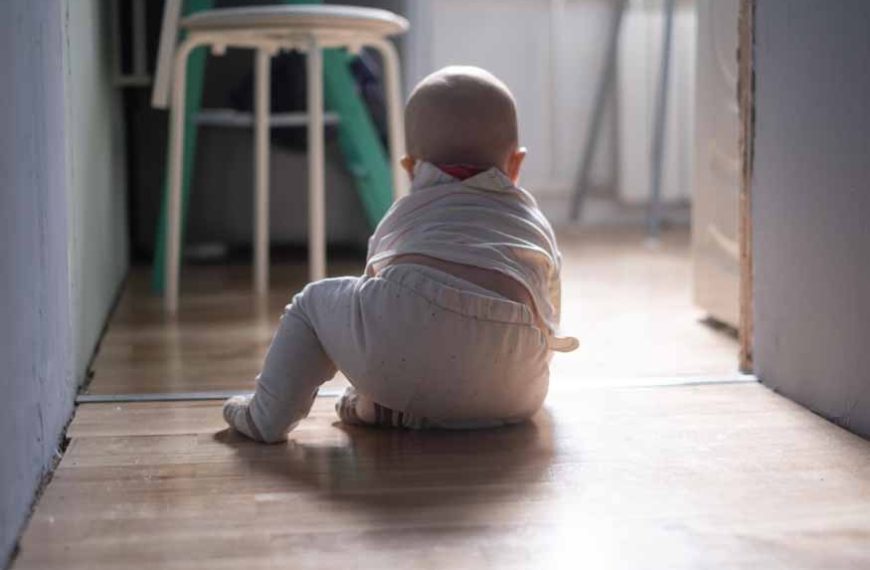Parenting is a journey filled with milestones and transitions. One such critical transition is moving away from ‘babying’ your infant as they grow. While it’s natural to want to protect and nurture your child, there’s a fine line between caring and overparenting. Recognizing the signs that your child is ready for more independence is crucial for their development. This blog will discuss five key indicators that suggest it’s time to adjust your parenting style and encourage more independence in your child.
Increased Desire for Independence
- Signs of Autonomy
- Encouraging Self-Sufficiency
Your child may start showing a desire to do things on their own, such as attempting to dress themselves or feed themselves. This is a clear sign they’re ready for more independence.
It’s important to encourage these efforts, even if they’re not perfect. Allowing your child to try, fail, and try again is essential for their growth and self-confidence.
Development of Social Skills
- Interest in Other Children
- The Role of Social Interaction
As your child grows, they will start to show interest in other children. This is a natural progression in their social development.
Engaging with peers is crucial for your child’s social and emotional development. Mom and toddler programs can be an excellent way for both of you to socialise and for your child to learn from and interact with other children in a structured setting.
Ability to Communicate Needs and Wants
- Verbal and Non-Verbal Cues
- Responding Appropriately
Children gradually develop the ability to communicate their needs and wants. This can be through words, gestures, or actions.
As your child’s communication skills develop, it’s important to respond in a way that encourages further communication and independence, rather than stepping in to speak or decide for them.
Showing Curiosity and Exploratory Behaviour
- Natural Curiosity
- Safe Exploration
A child’s increasing curiosity about the world around them is a key indicator of readiness for more independence.
Provide opportunities for safe exploration. This could be in the form of playdates, trips to the park, or interactive activities at home. Programmes for infant and toddler care often incorporate activities designed to stimulate a child’s curiosity and exploration skills.
Resistance to Overparenting
- Signs of Frustration
- Adjusting Your Approach
If your child shows signs of frustration or resistance when you try to help them with tasks they can do themselves, it may be a sign that you’re overparenting.
It’s important to recognise these cues and adjust your approach. Encourage your child to take the lead in tasks they’re capable of handling.
Transitioning Your Parenting Style
- Gradual Steps
- Consistency is Key
- Supportive Environment
The transition from babying your child to encouraging independence should be gradual. Start with small steps, allowing your child to take on age-appropriate tasks and responsibilities.
Consistency in your approach will help your child understand and adapt to the changes in your parenting style.
Create a supportive environment that allows your child to explore their independence safely. This means being there to guide and assist, rather than control.
Understanding the Impact of Overparenting
Overparenting, while often well-intentioned, can inadvertently hinder a child’s ability to develop essential life skills. This protective approach can impact a child’s confidence, risk-taking abilities, problem-solving skills, and their overall autonomy.
- Fostering Resilience
- Encouraging Problem-Solving
Allowing children to experience minor setbacks and challenges is crucial for building resilience. Resilient children are better equipped to face life’s ups and downs and are more likely to develop into confident and capable adults.
Instead of stepping in to solve every problem, encourage your child to think of solutions. Ask guiding questions like, “What do you think you could do in this situation?” This approach fosters critical thinking and decision-making skills.
Balancing Guidance and Independence
- Gradual Release of Control
- Creating Opportunities for Independence
As your child demonstrates readiness, gradually release control over their activities and choices. This doesn’t mean withdrawing support but rather shifting from a directive to a more advisory role.
Create safe opportunities for your child to make choices and take risks. This could be as simple as choosing their outfit for the day, deciding on a snack, or selecting a book to read.
The Role of Structured Programmes
- Benefits of Mom and Toddler Programs
- Choosing the Right Program for Infant Toddler Care
Programs designed for parents and toddlers can be an excellent way to transition into this new phase. These programmes offer structured activities that encourage independence while providing the safety net of parental presence.
When selecting a program, look for those that focus on child-led learning and exploration. These programs should encourage independence while still providing the necessary support and guidance from caregivers.
Embracing the Emotional Aspect
- Dealing with Parental Emotions
- Supporting Emotional Development in Children
The process of stepping back can be emotionally challenging for parents. It’s normal to feel a sense of loss as your child becomes more independent. Acknowledge these feelings and remind yourself that fostering independence is a crucial part of your child’s development.
Recognize and validate your child’s emotions during this transition. They might experience frustration, anger, or even sadness as they navigate new challenges independently. Support them through these emotions, teaching them that it’s okay to feel and express their feelings.
Preparing for the Future
- Long-term Benefits
- Continual Adjustment
The skills and qualities developed during this transition are foundational for future success in school and beyond. Children who learn to navigate their environment, interact with peers, and solve problems independently are better prepared for the challenges of the real world.
As your child grows, your parenting style will need to continue evolving. Stay attuned to your child’s development and be ready to adjust your approach to suit their changing needs.
Transitioning away from babying your child is a pivotal step in their growth. Recognizing the signs that your child is ready for more independence and adjusting your parenting approach accordingly will set them up for a lifetime of learning and self-discovery.
At EuroKids, we’re dedicated to supporting families through this important transition. Our programs are designed to nurture your child’s independence while providing the guidance and support they need to thrive.















